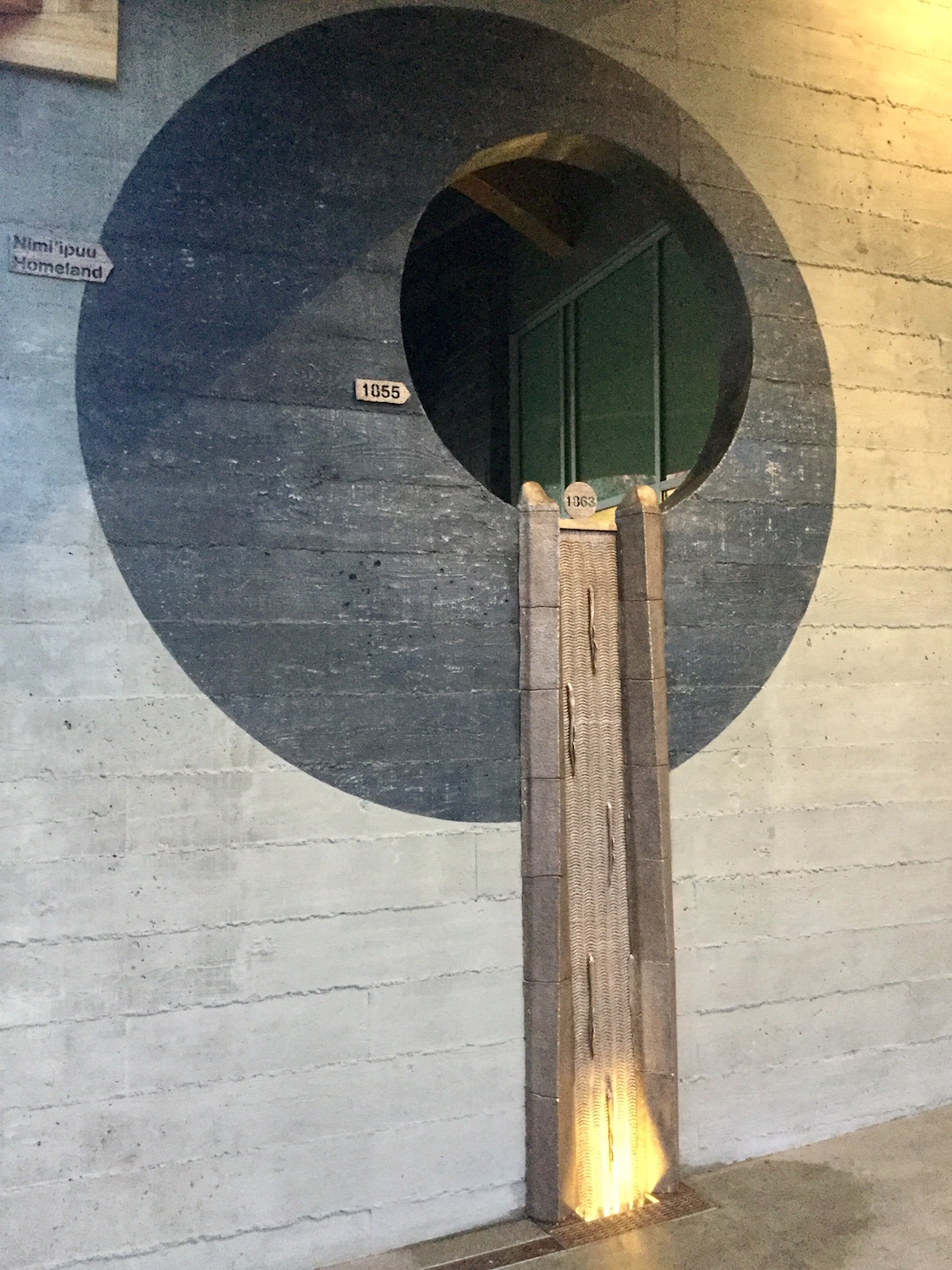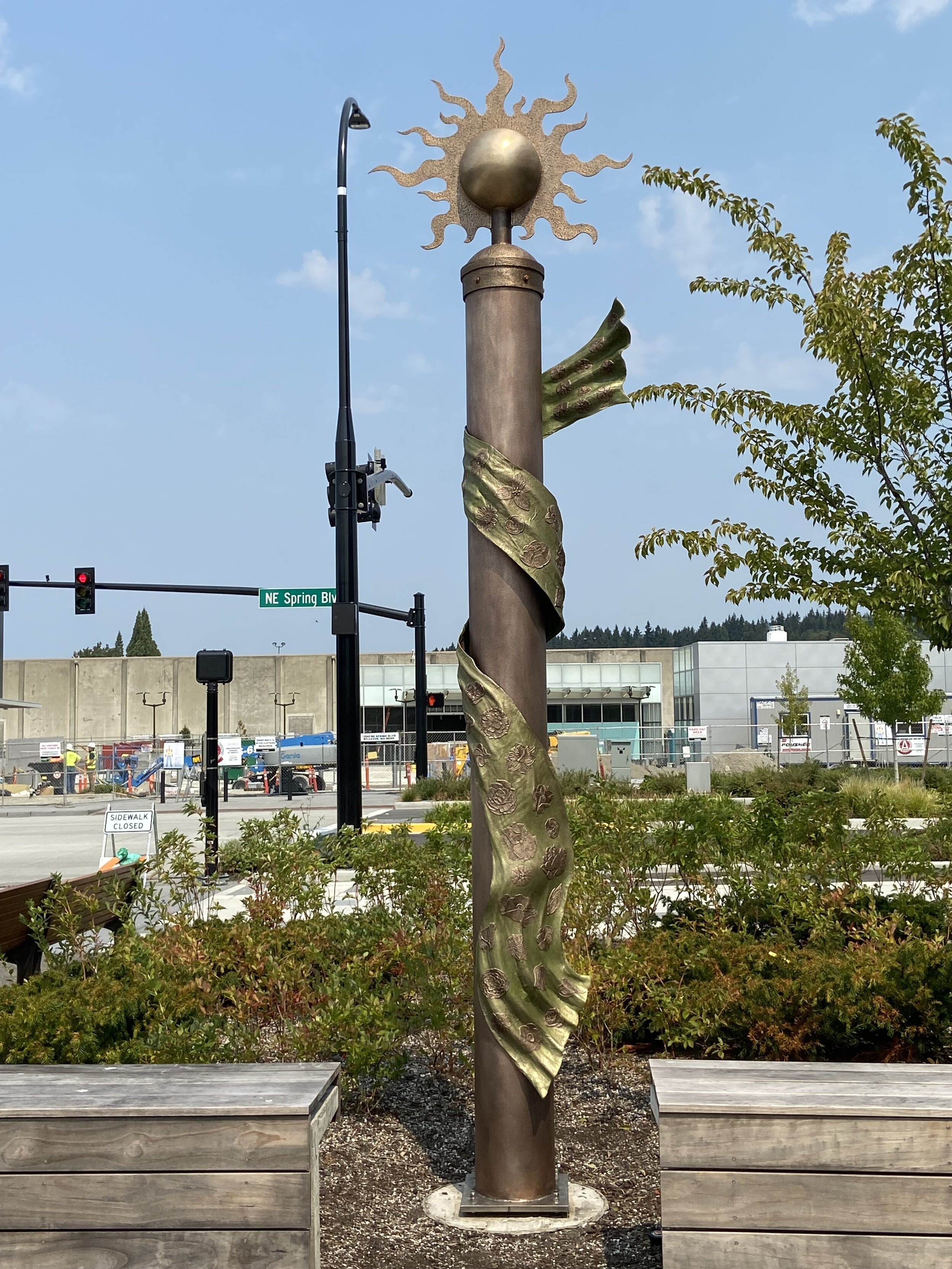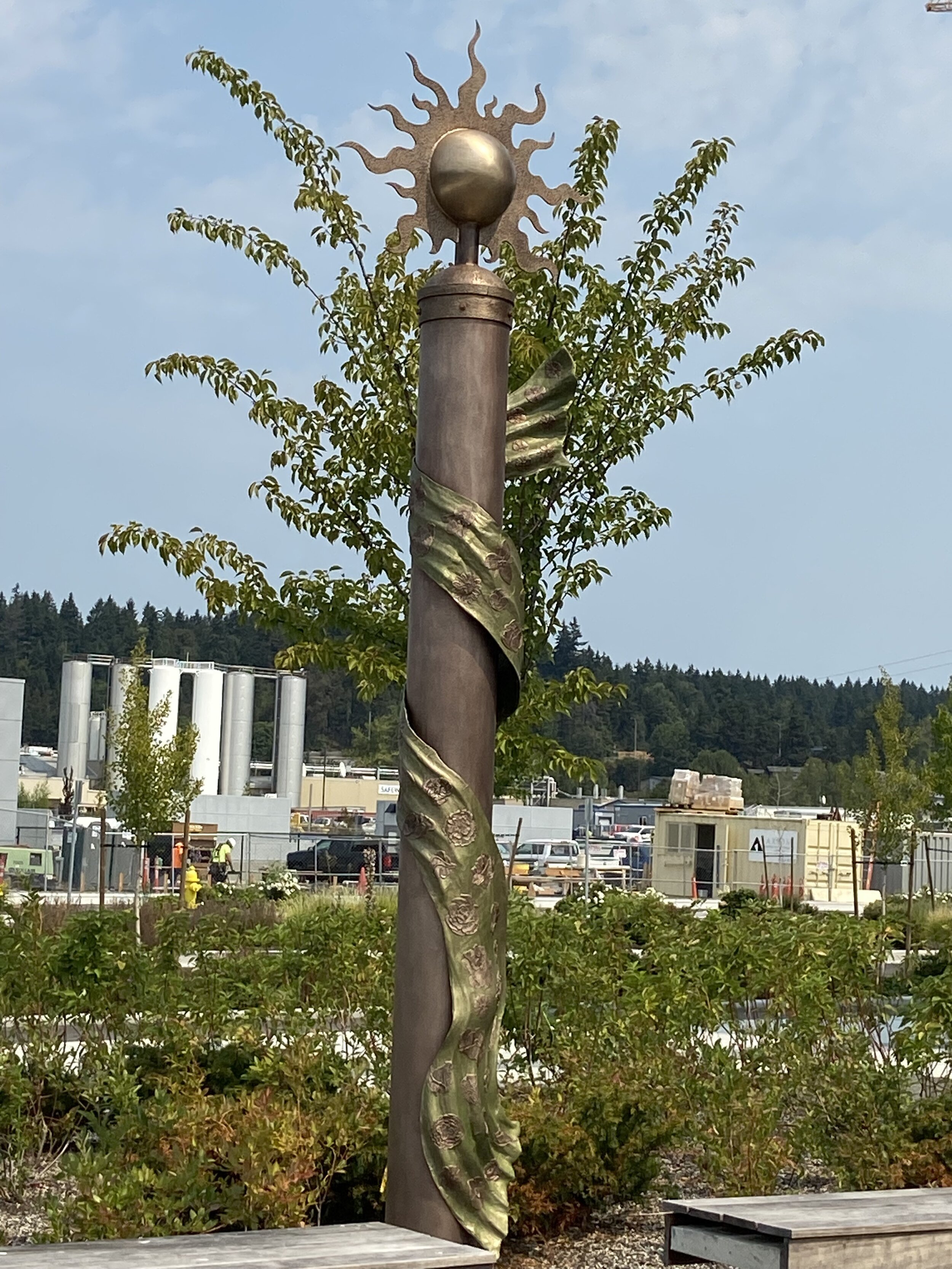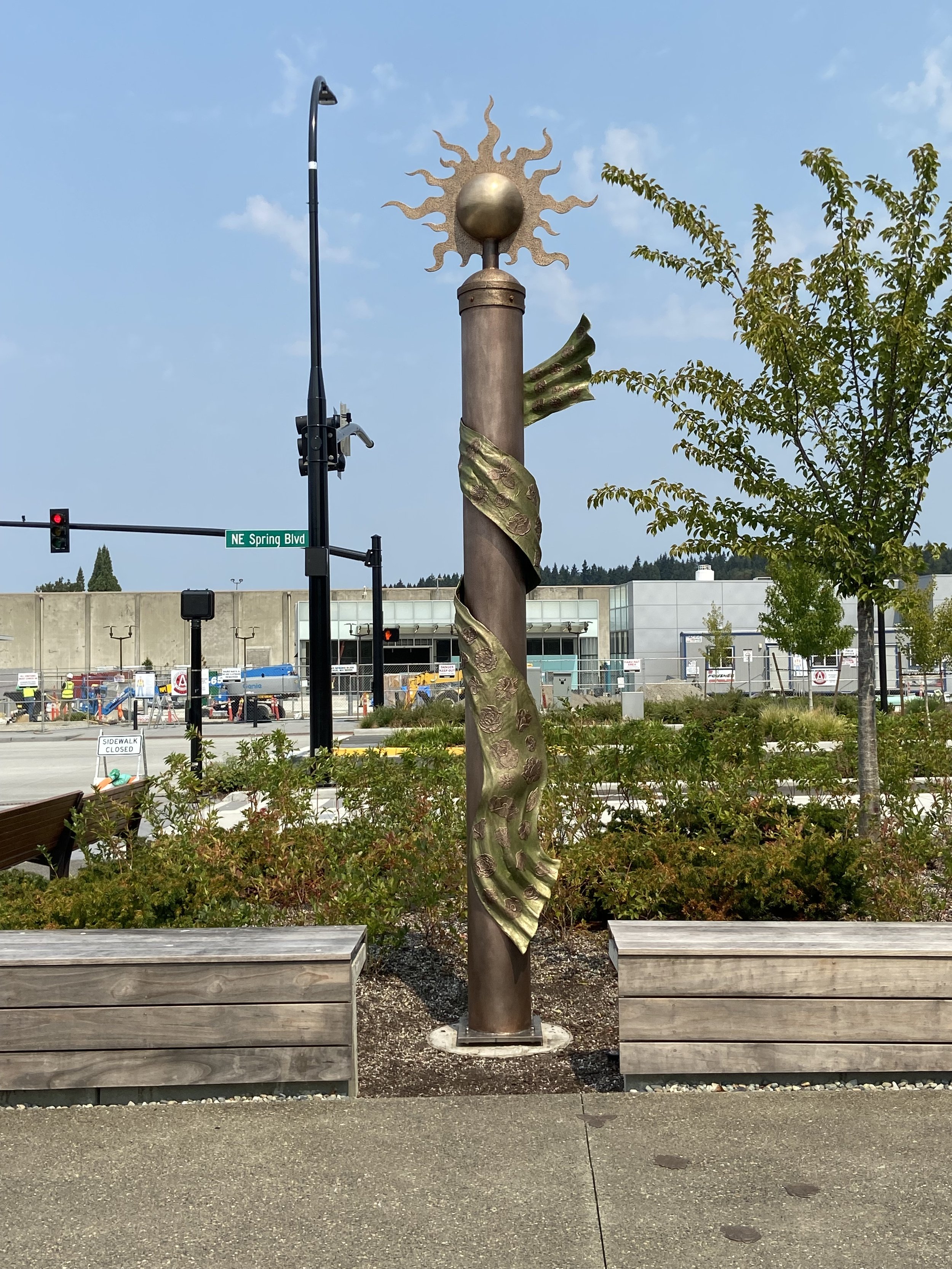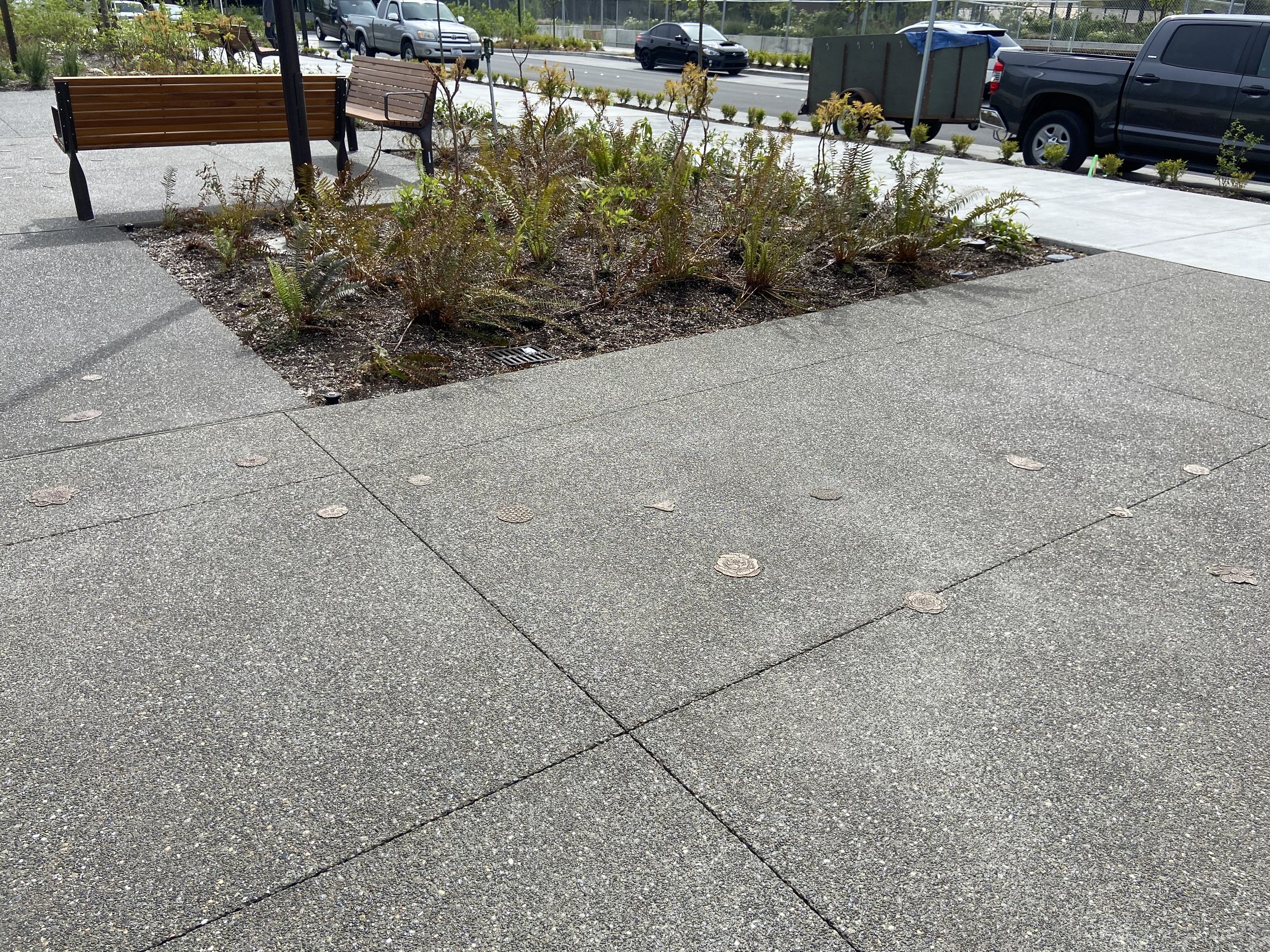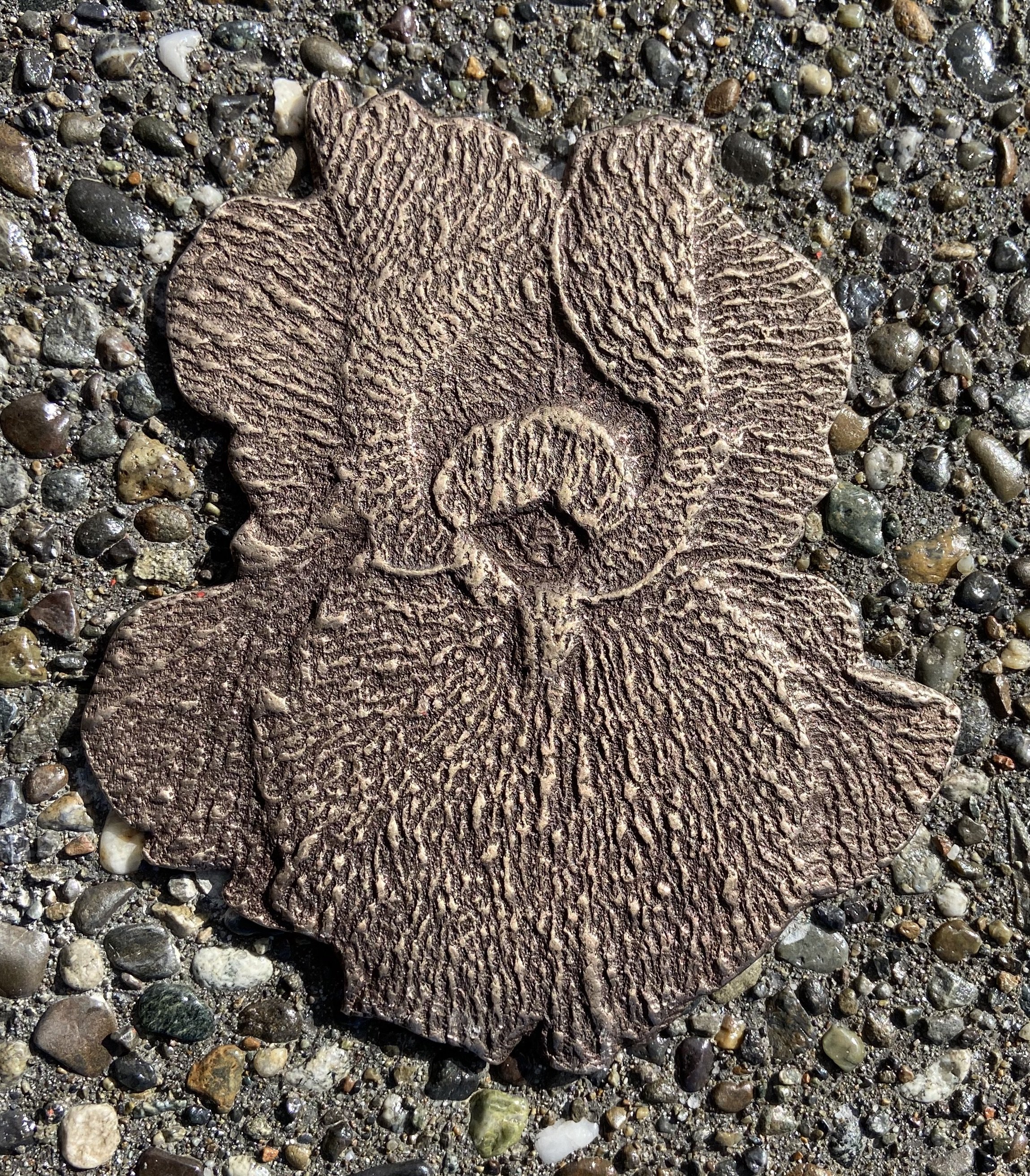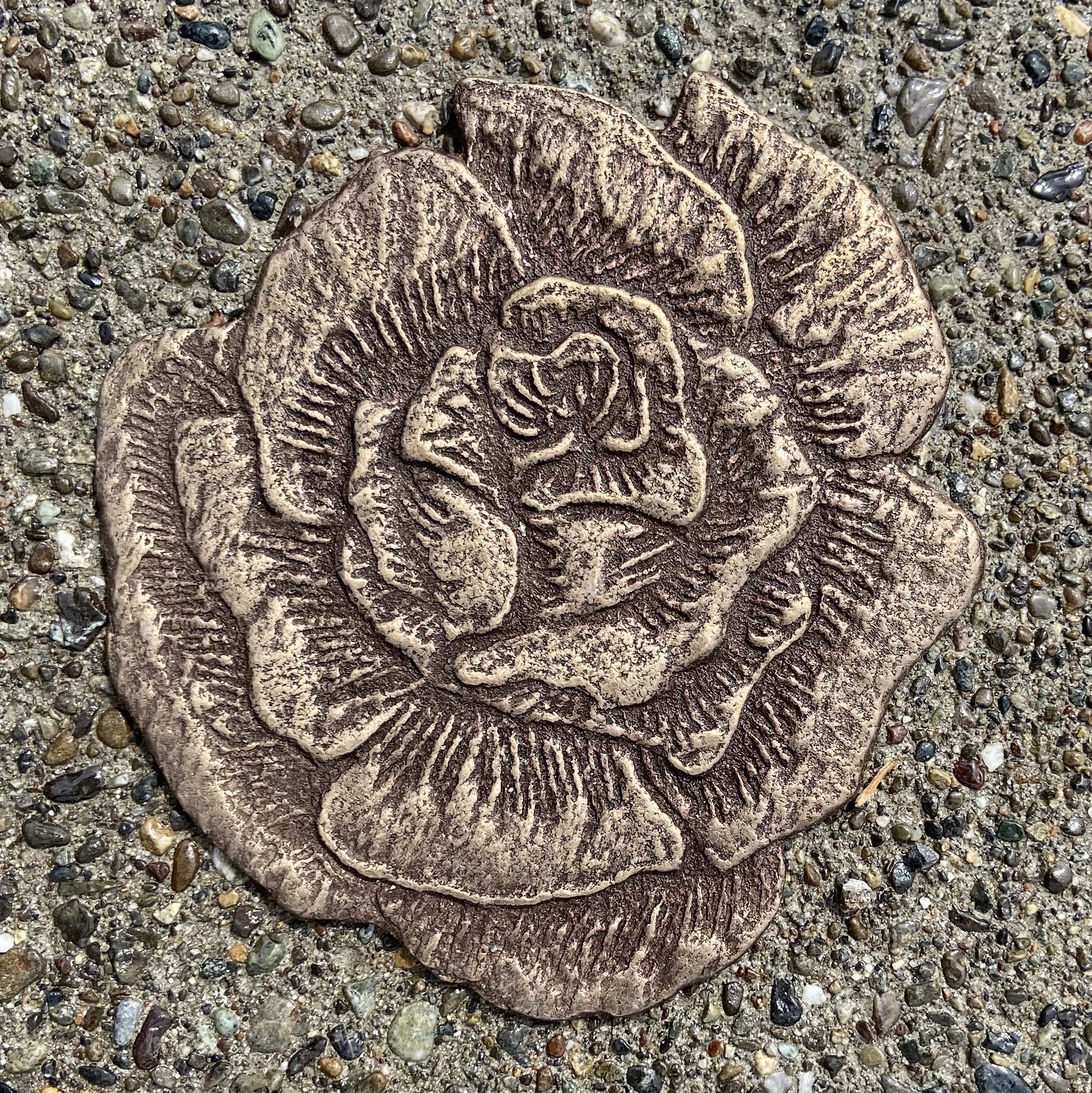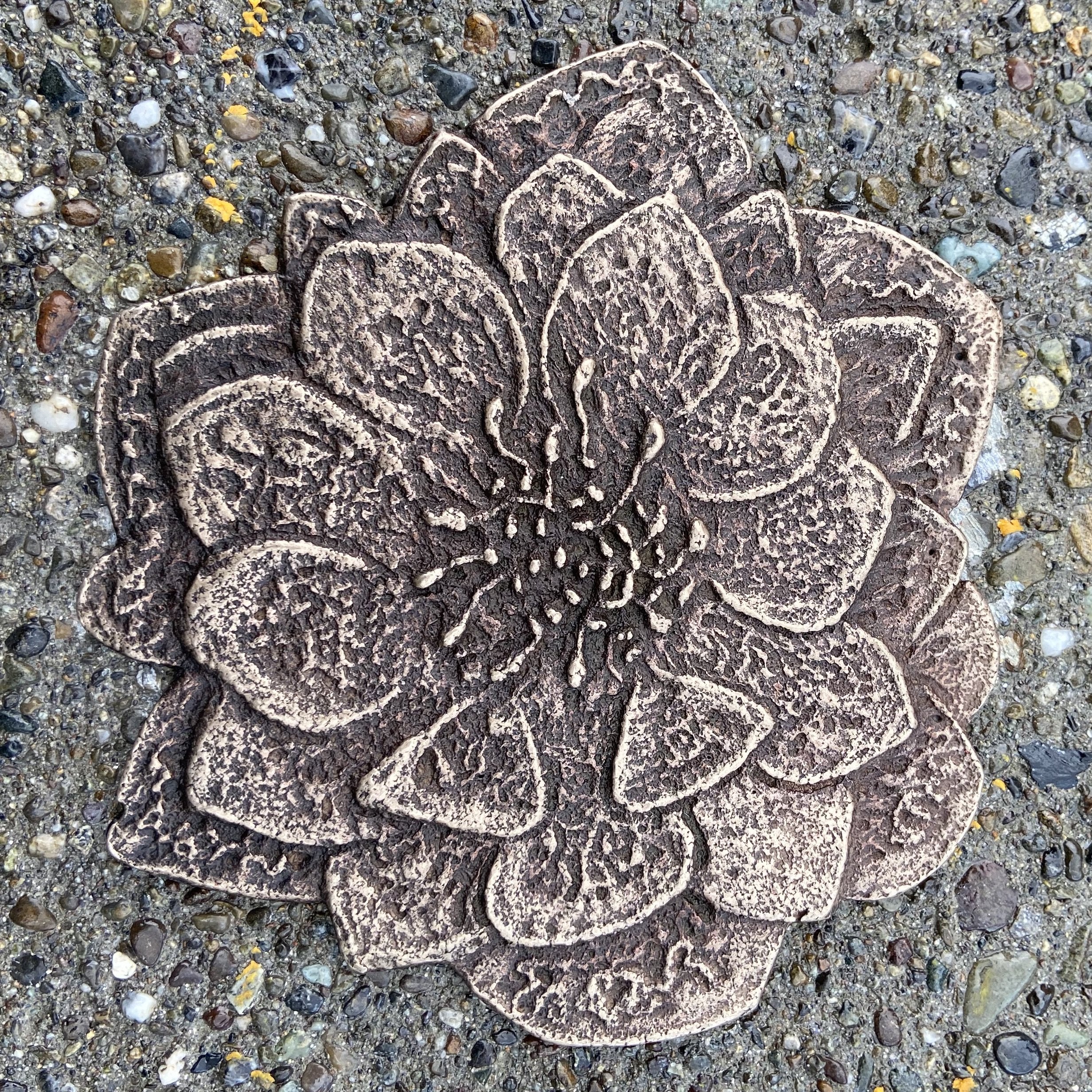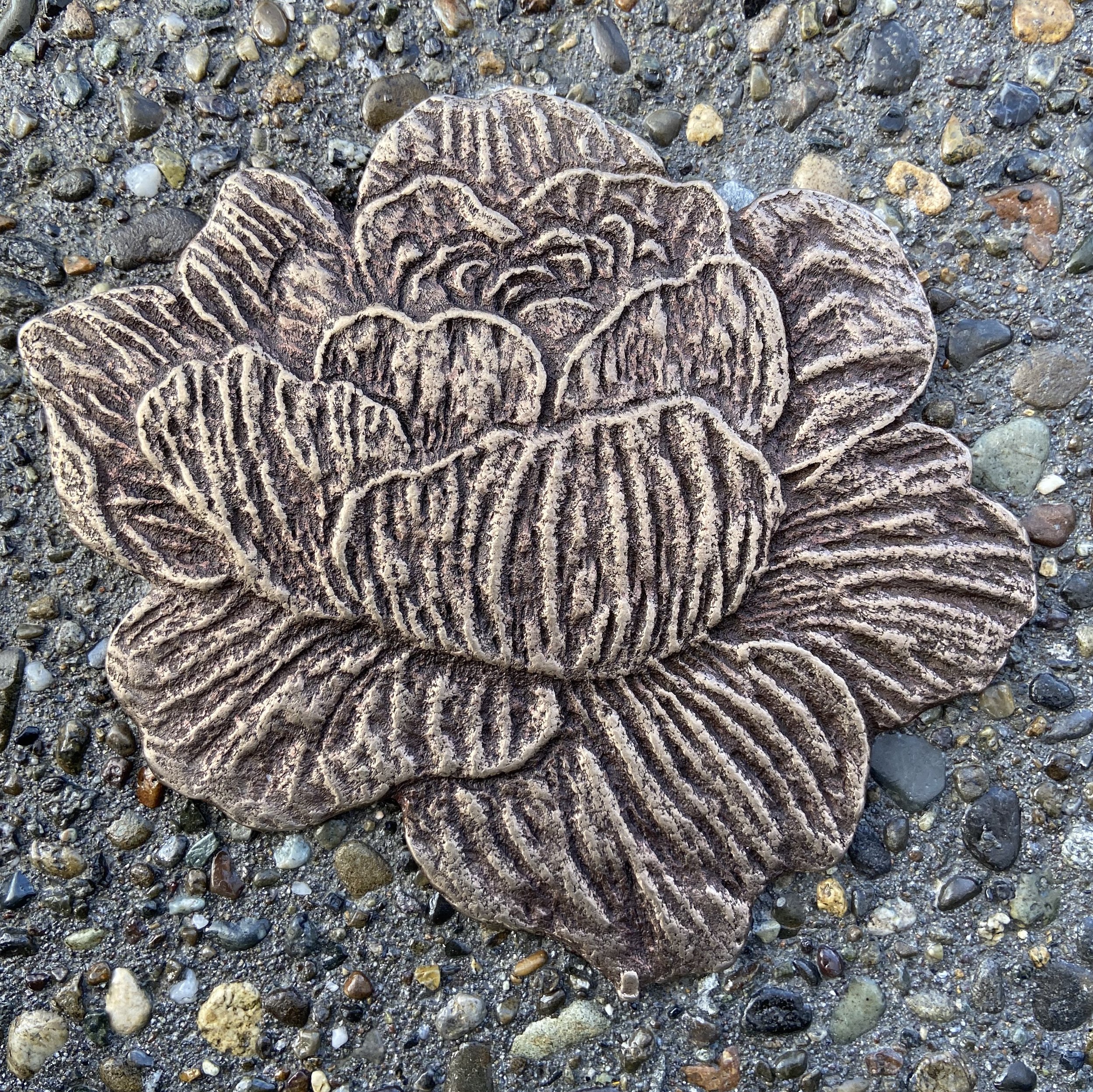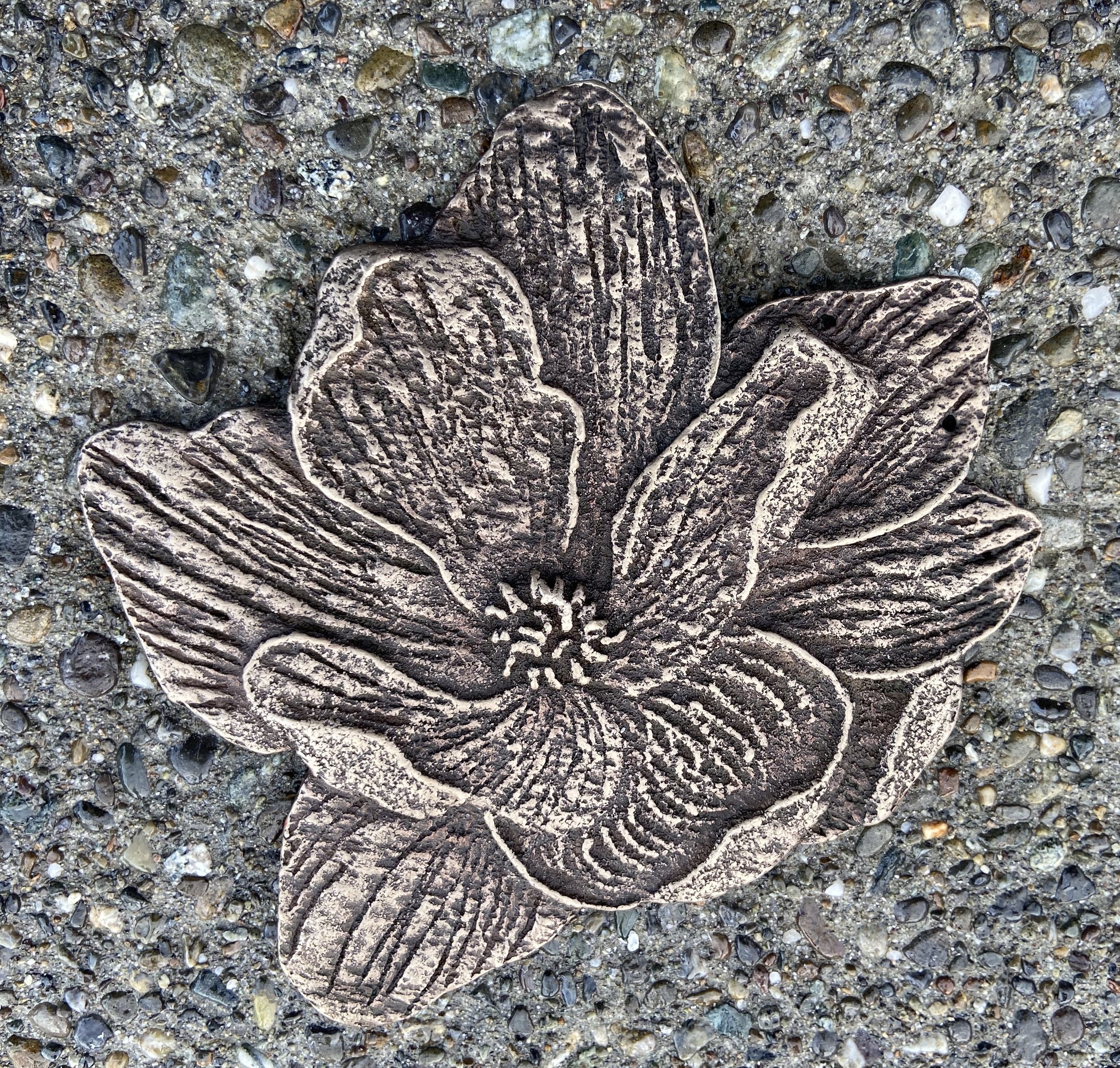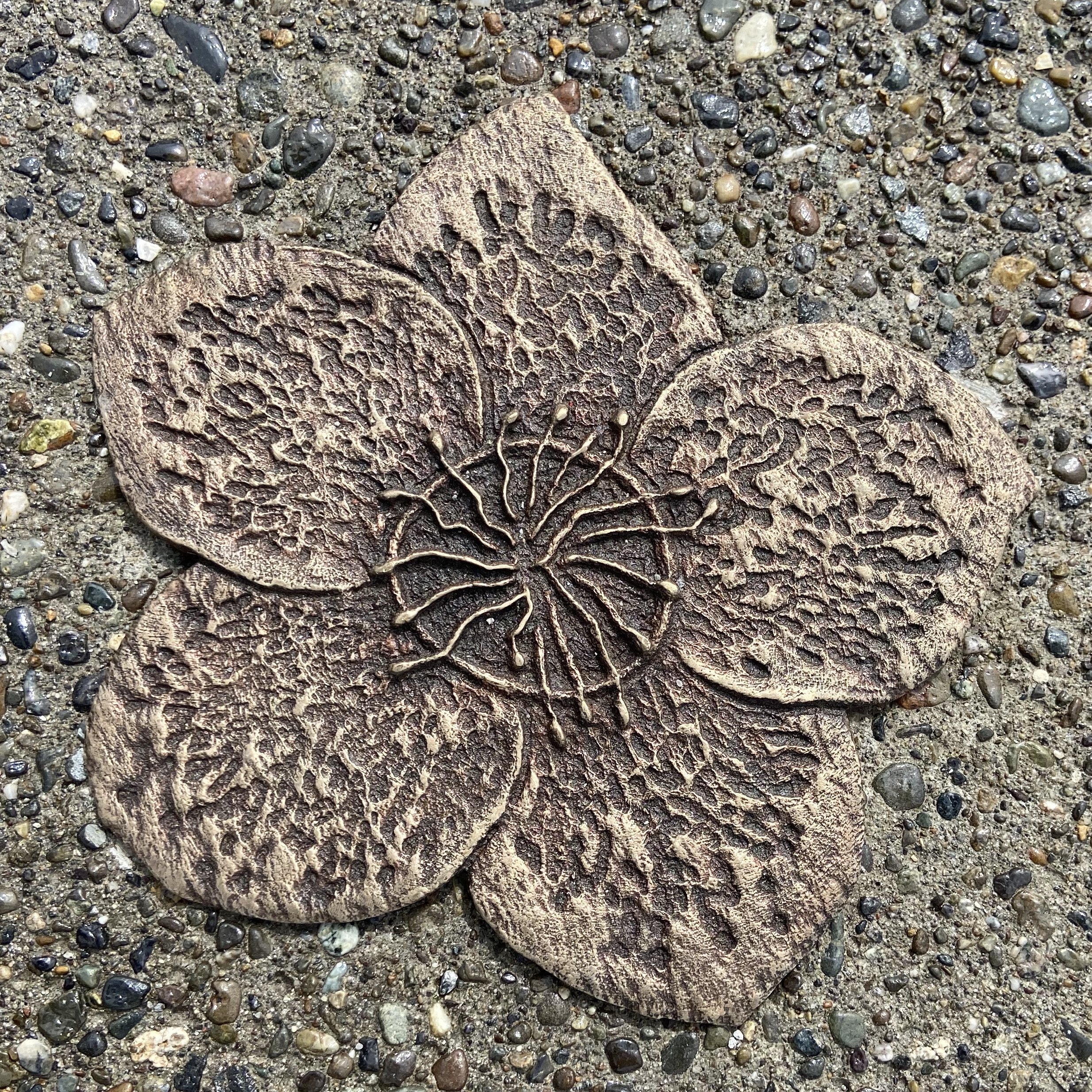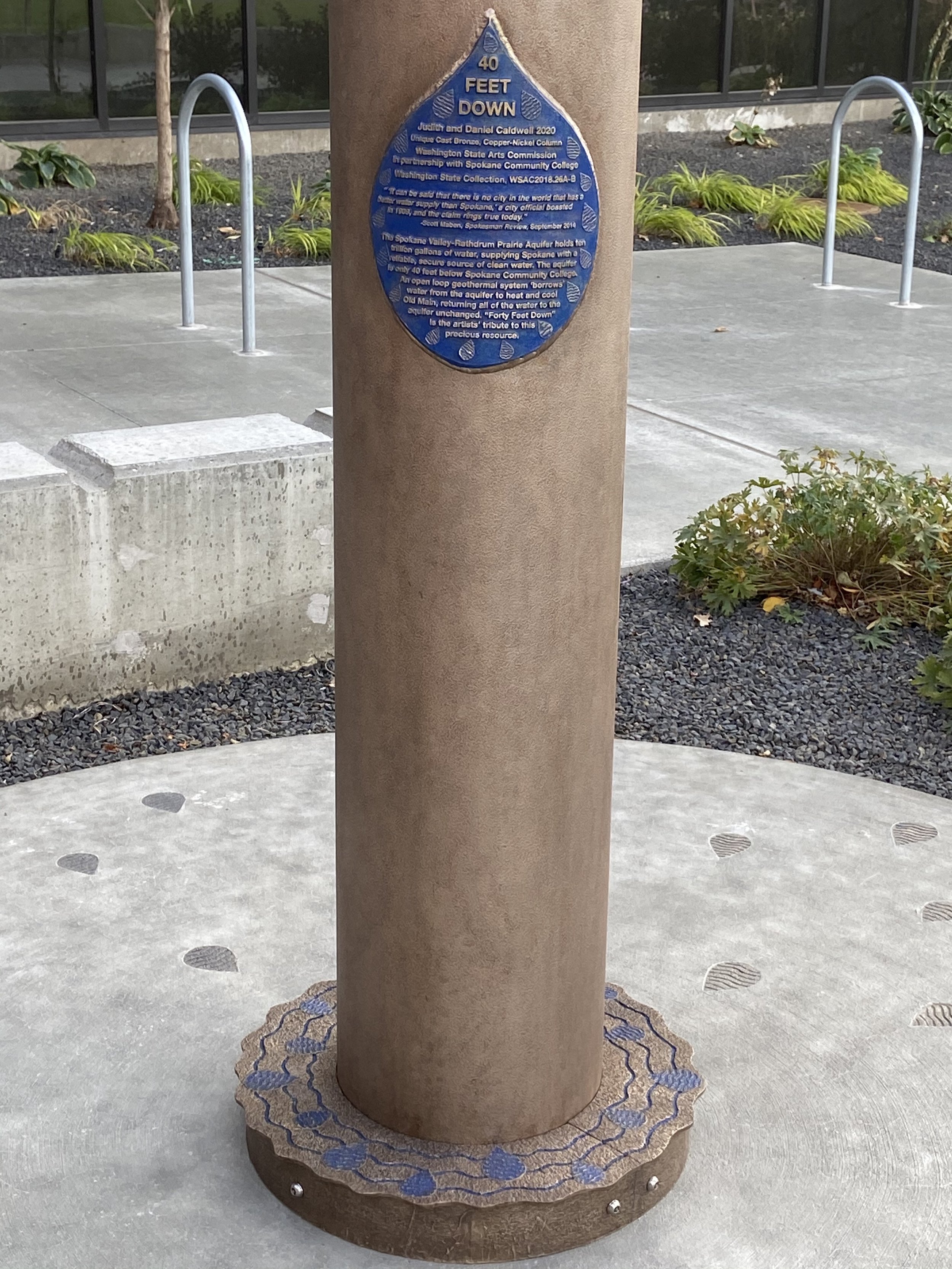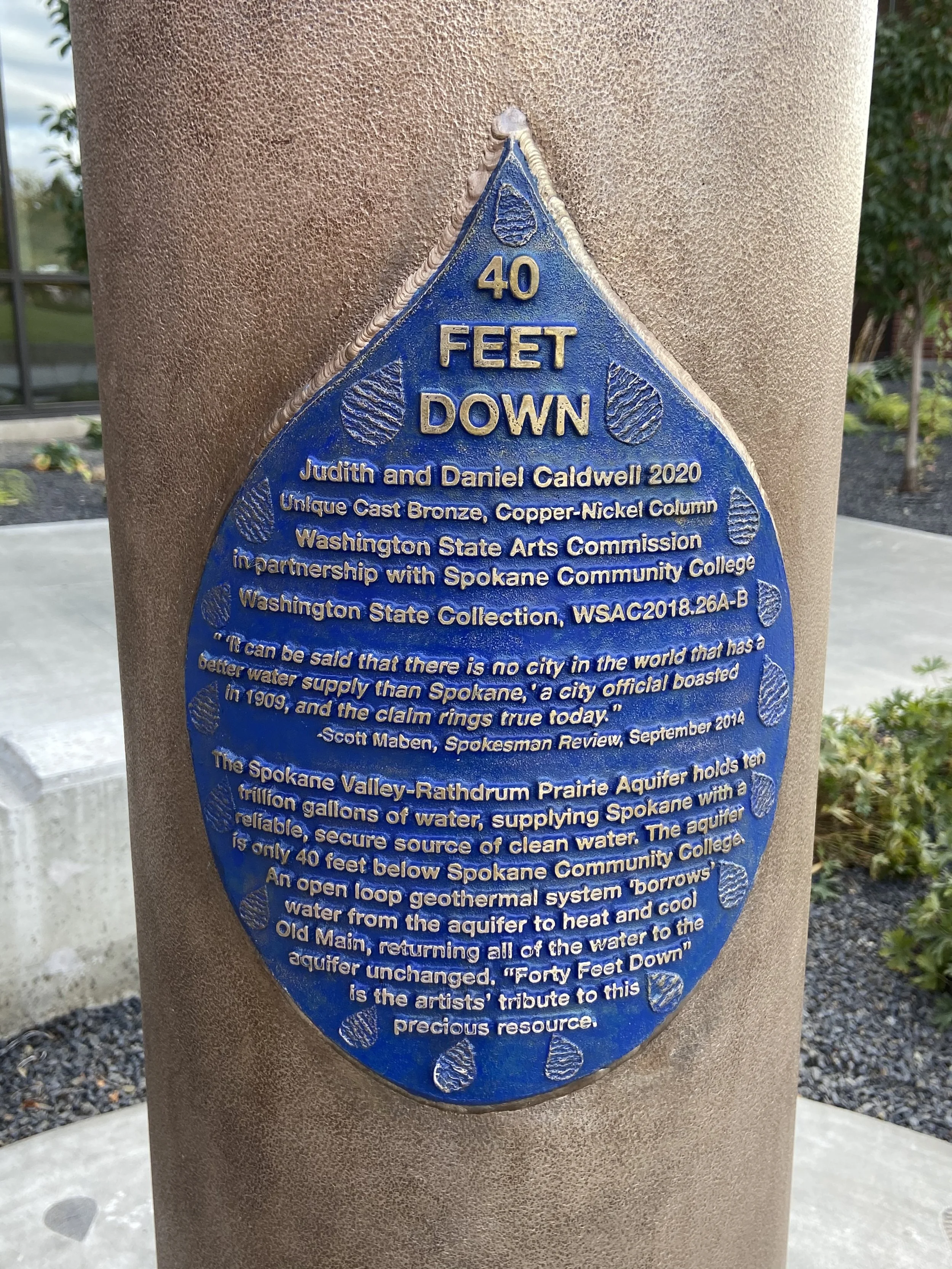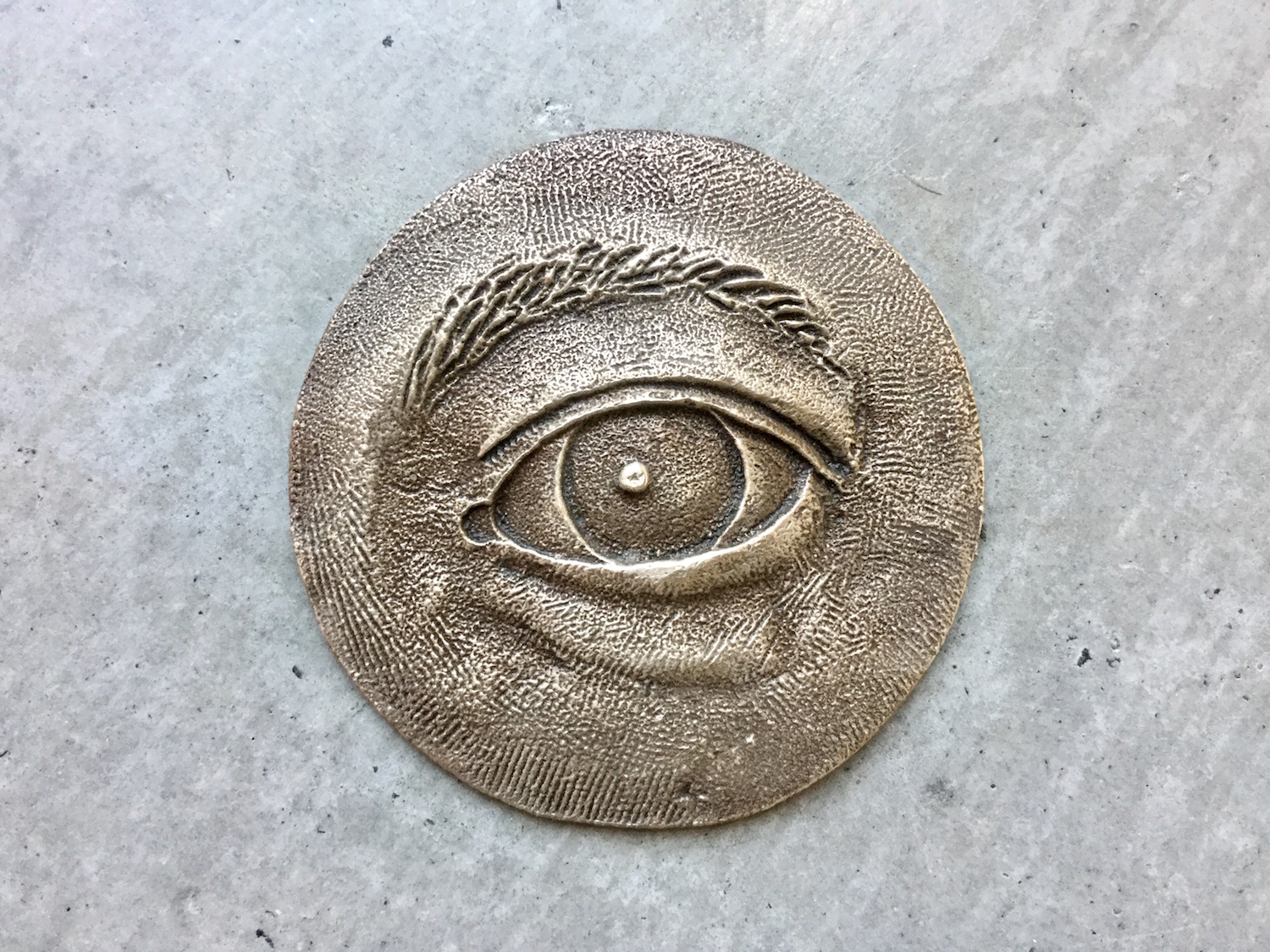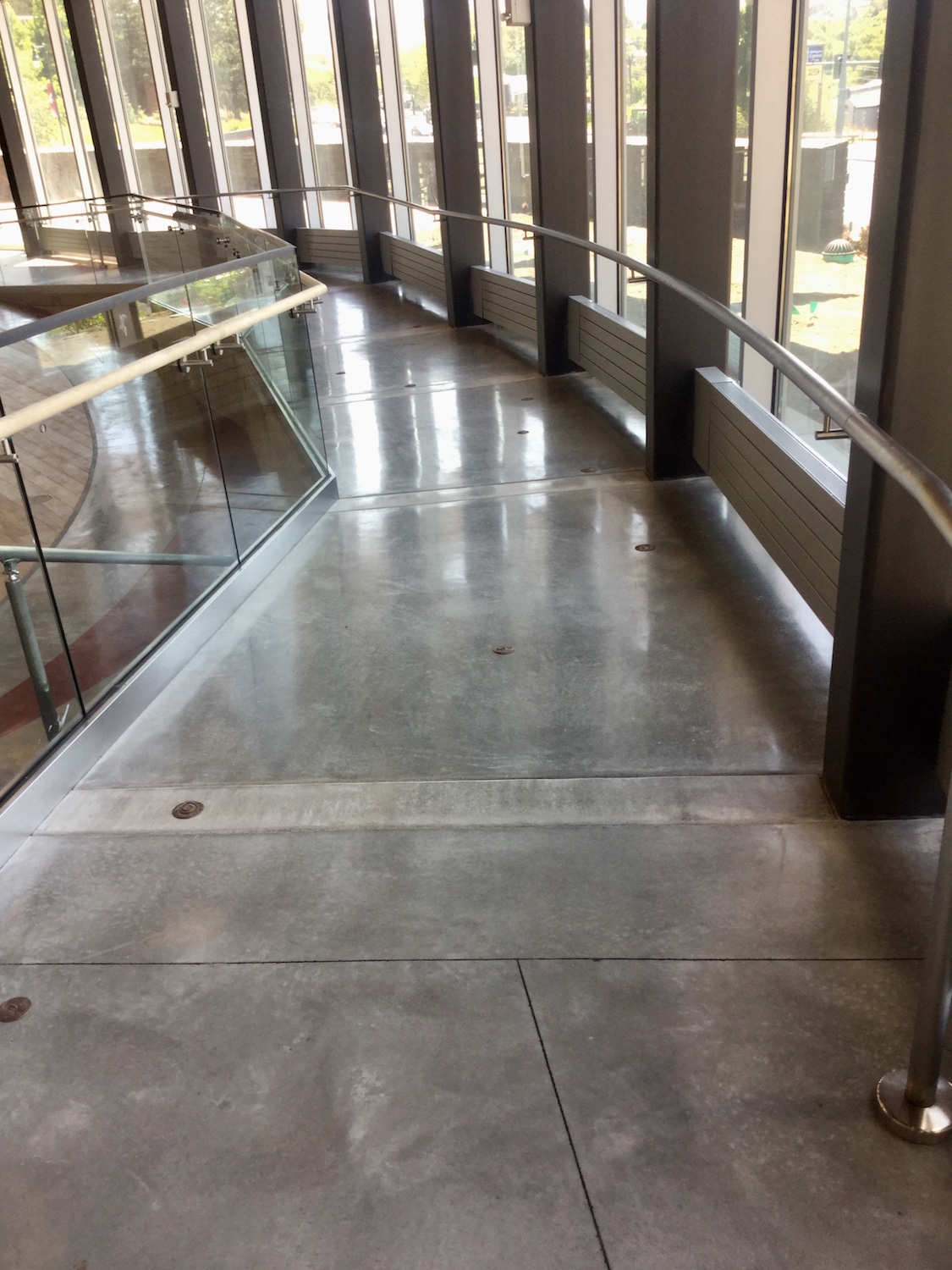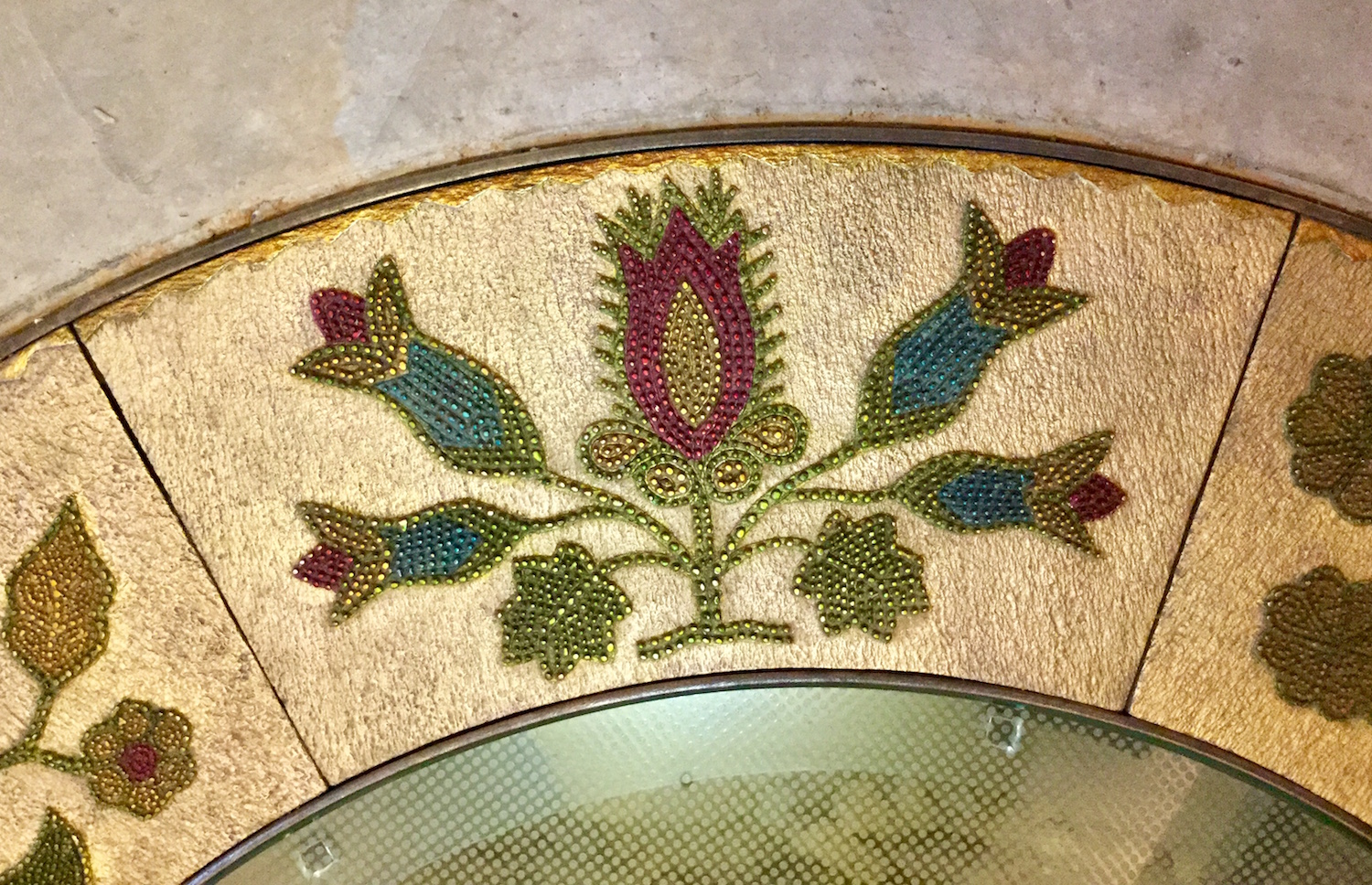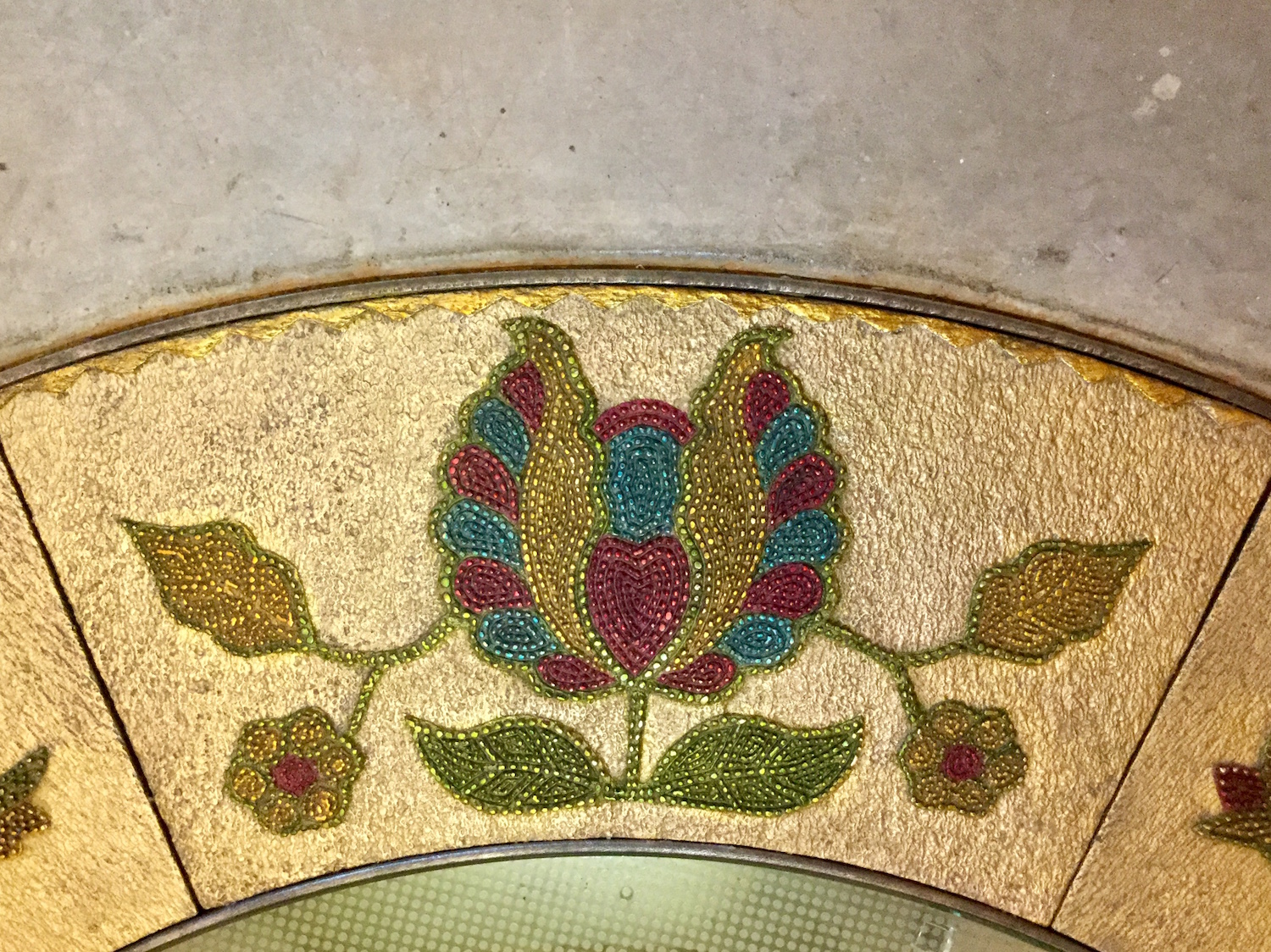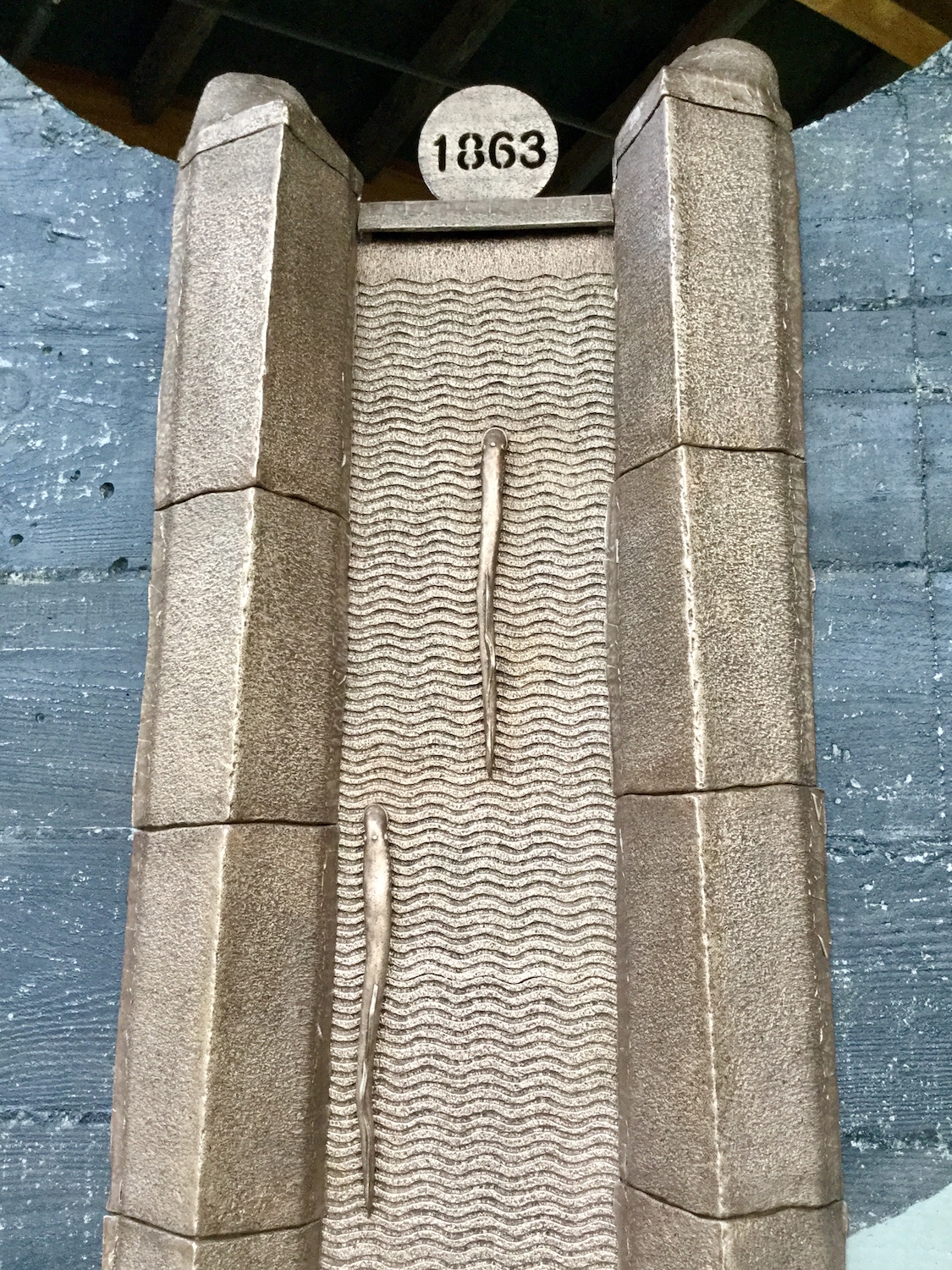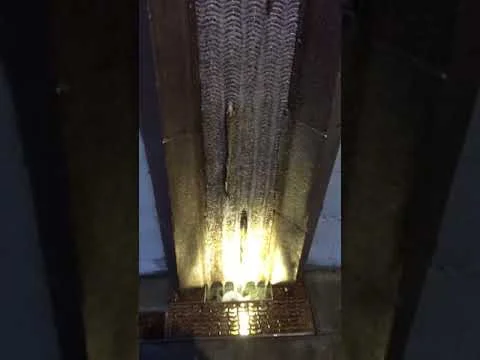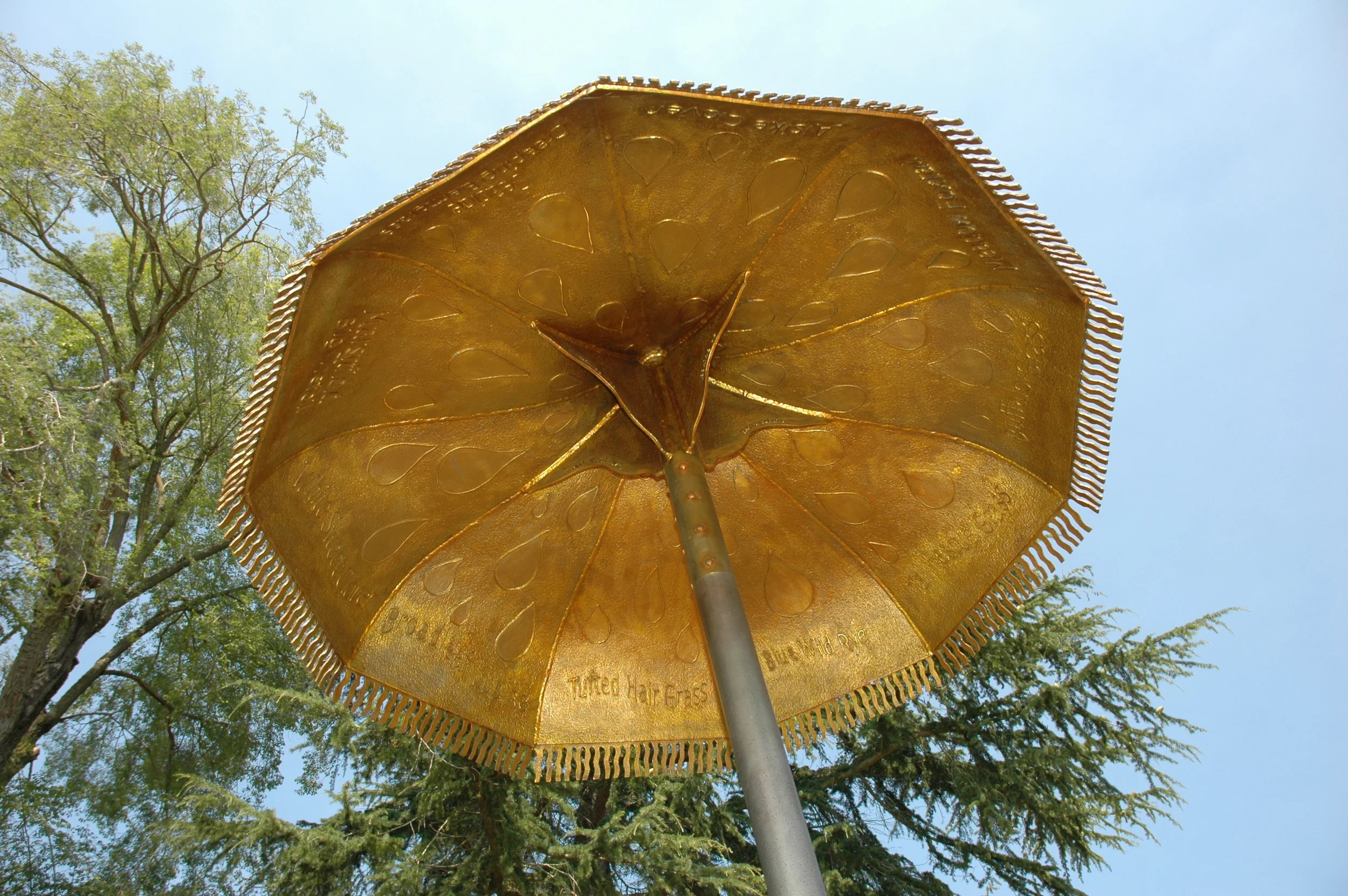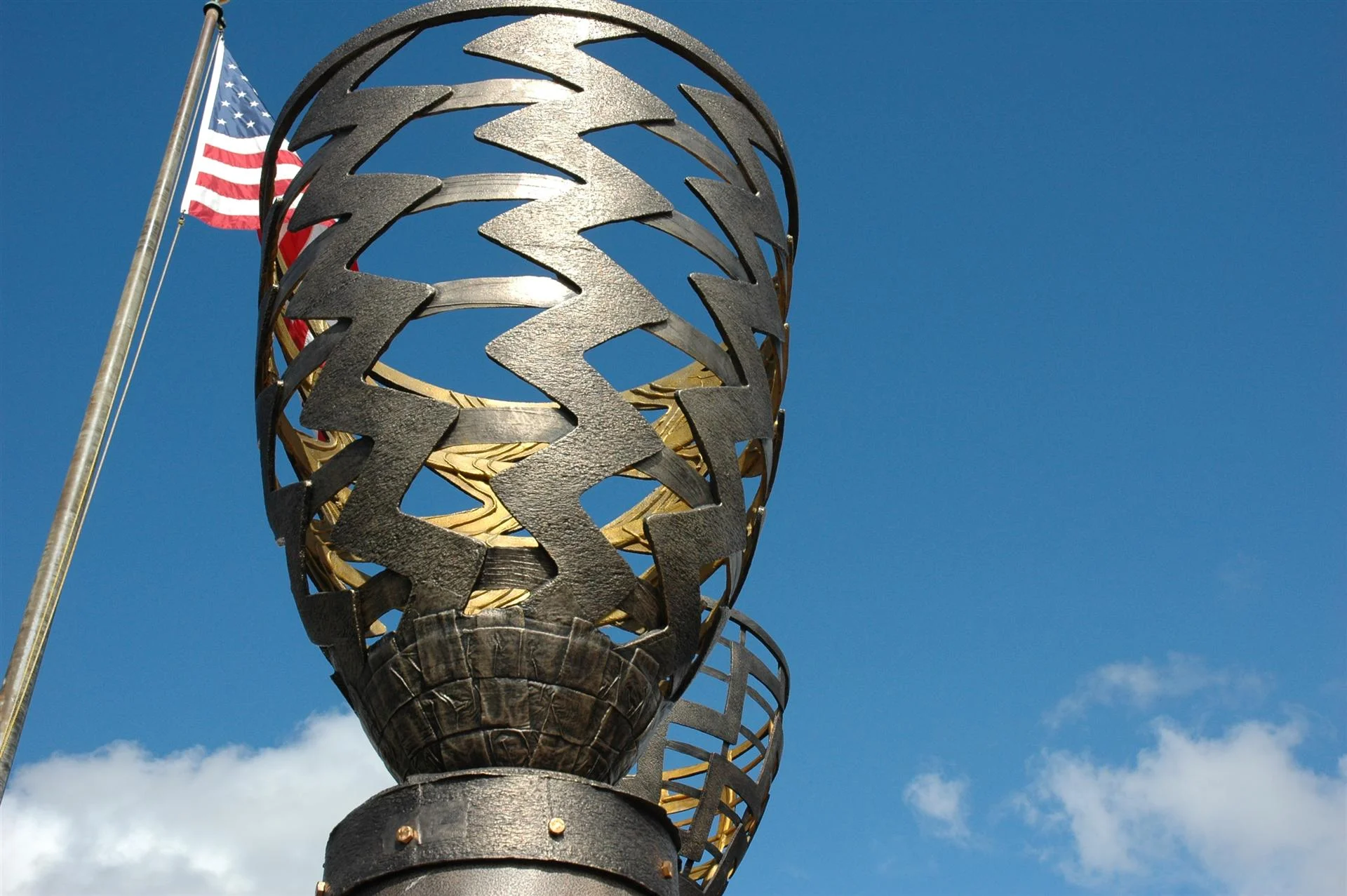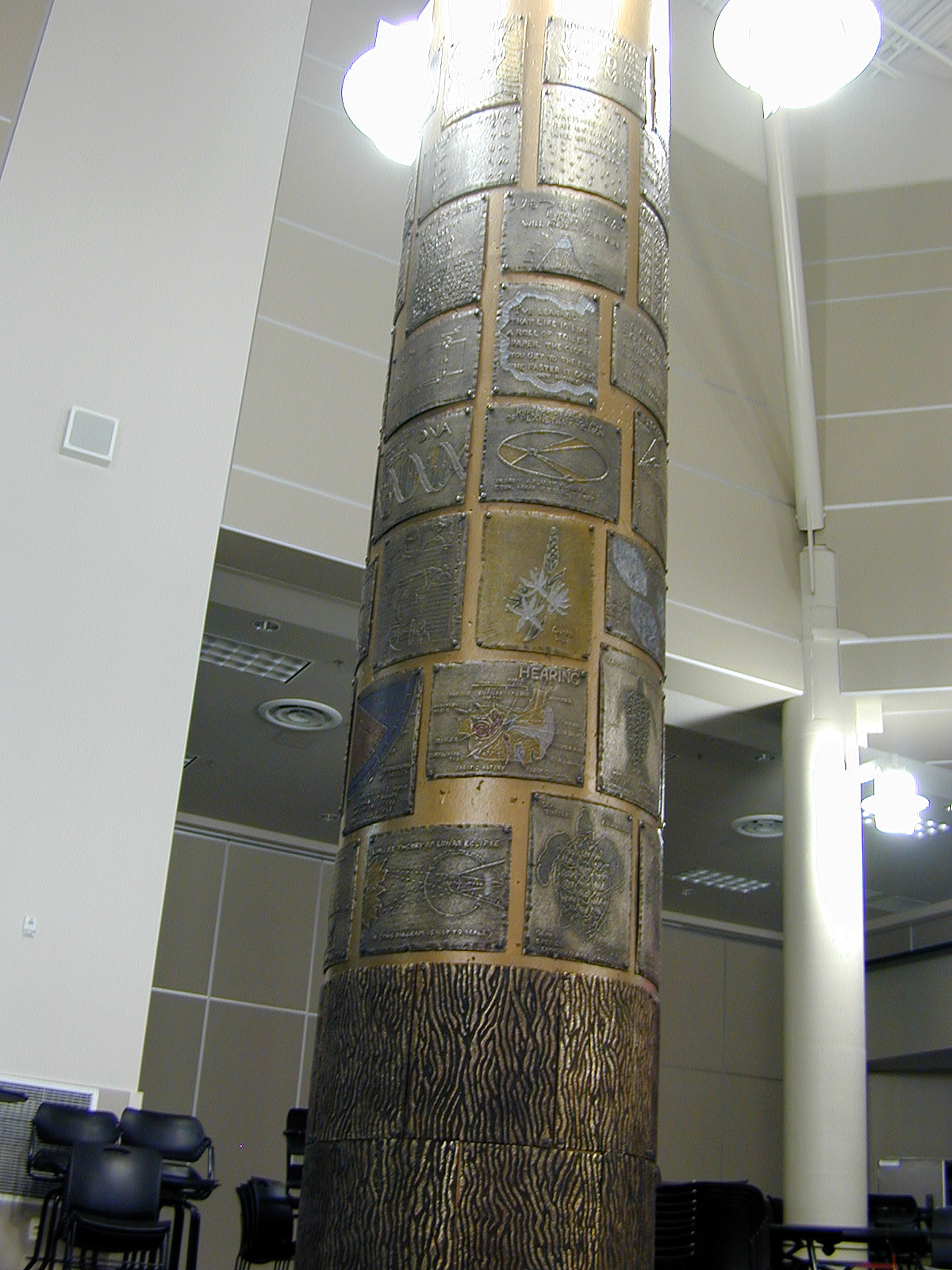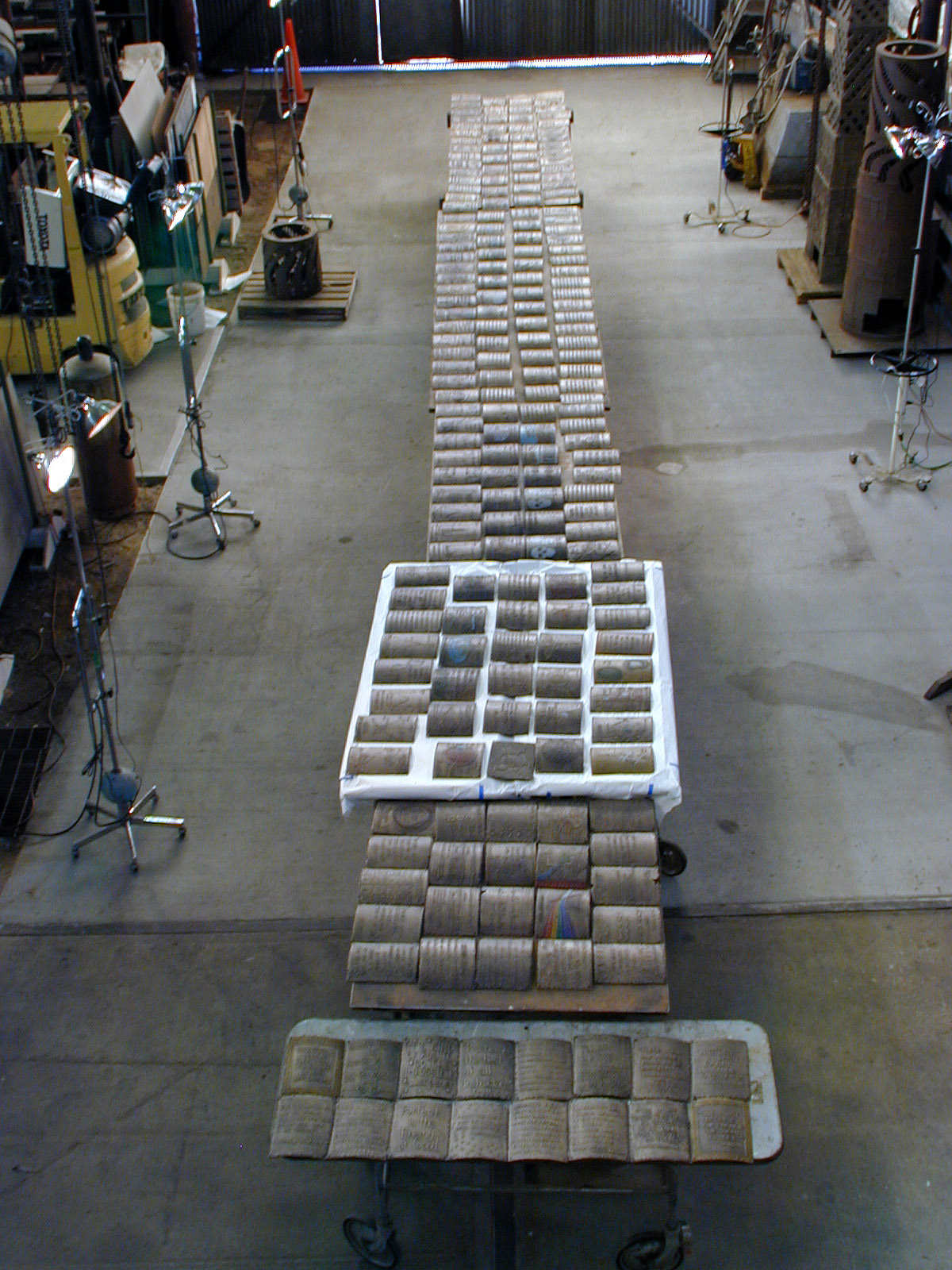Date: 2017
Commissioned by: Washington State University
In collaboration with GGLO Architects, Seattle WA.
EAST AND WEST ENTRY PANELS
Dimensions: 80” x 24” x 1.5”
Medium: flame-cut steel
In consultation with Nakia Williamson-Cloud, Nez Perce historian and linguist
The East Entrance to the Elson S. Floyd Cultural Center at WSU is used mainly by pedestrians, and the West Entrance by people arriving in vehicles. At both entrances, visitors are greeted by tall, heavy steel panels themed on Nez Perce culture and mythology.
EYES OF THE ELDERS
Media: cast bronze
A reverence for elders—both human and animal—is fundamental to the beliefs and practices of traditional cultures. Since animals arrived before people, the Nez Perce count them as elders and teachers, looking to them for the lessons of life. The Eyes of the Elders is a collection of bronze eyes traveling across the floor of the Elson S. Floyd Cultural Center, representing animals from Nez Perce mythology and human beings who have spent their own lives in service to humanity. The installation begins just inside the East Entrance of the building, with a wall-mounted cast bronze Cornhusk bag, patterned after a traditional Nez Perce design. The eye of Coyote, the trickster hero-villain of Nez Perce mythology, emerges from the bag. Nearby, on the floor, a trail of 66 single eyes lead visitors down a ramp and around the perimeter of the great hall to the exterior door that leads to the Meditation Pavilion.
SACRED EARTH CIRCLE
Dimensions: 42” diameter x 1.50” h
Medium: unique cast bronze
The Meditation Chamber is a small Corten steel-clad building constructed alongside the Elson S. Floyd Cultural Center designed by GGLO Architects, Seattle. The skylit space functions as a retreat for reflection and contemplation. GGLO designed the Chamber to include a well in the center, into which was placed earth from a site sacred to the Nez Perce and covered with glass. Surrounding the well is a bronze floor sculpture referencing traditional Nez Perce beadwork, especially as it appears on cradleboards made by women for their infants.



